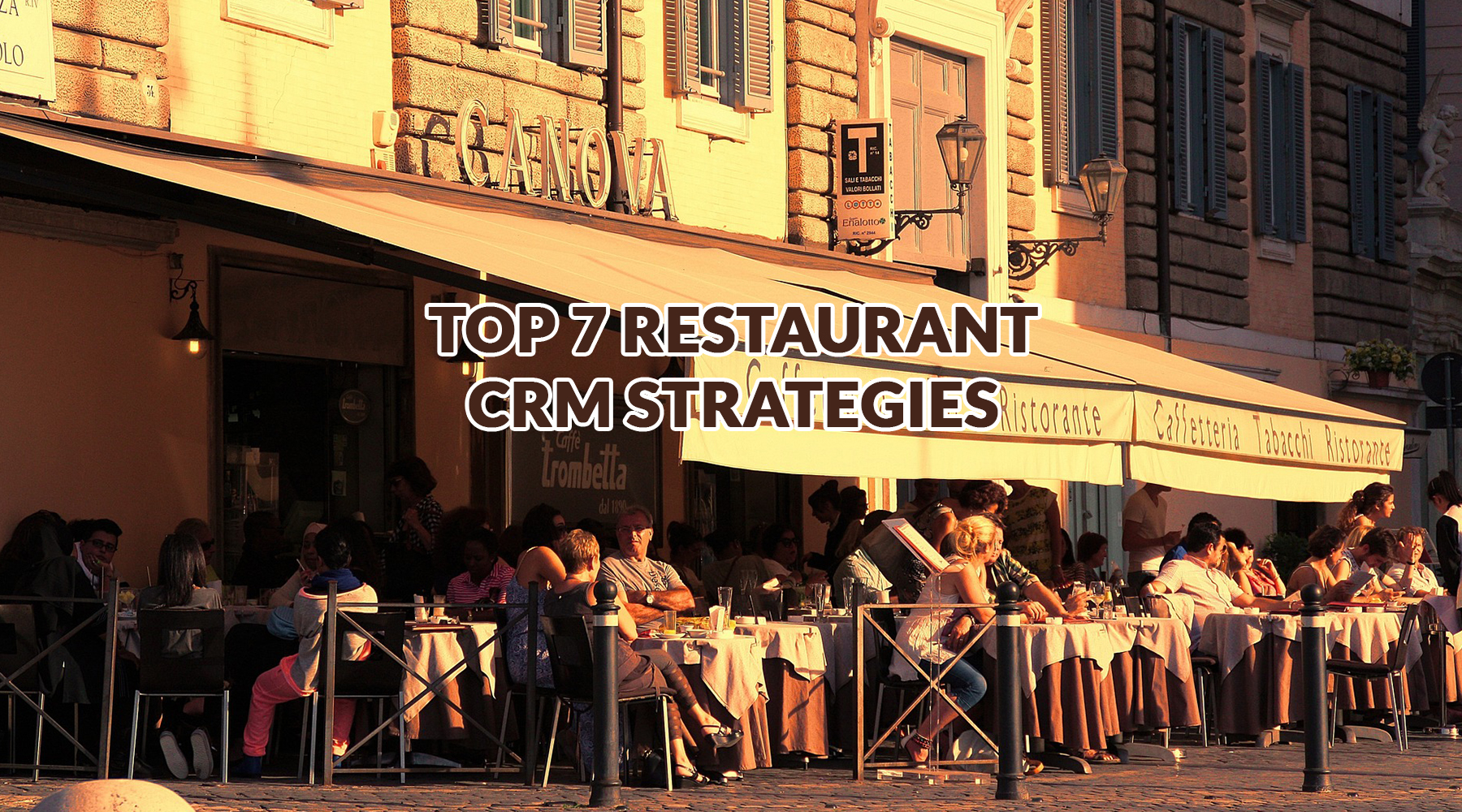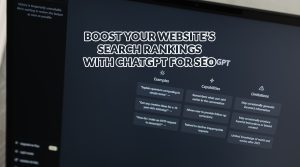
The art of keeping customers coming back for more is akin to a perfectly cooked dish – a balance of flavors, executed with precision, and presented with flair. In the bustling world of the restaurant industry, where patrons are spoiled for choice, it has become increasingly important for establishments to not just serve mouthwatering cuisine, but also to create lasting connections with customers. Enter the realm of restaurant Customer Relationship Management (CRM) strategies, the secret sauce that can turn one-time visitors into loyal regulars, and help elevate a restaurant’s success to new heights.
As patrons seek not just fine dining but an experience that leaves a lasting impression, CRM strategies provide the tools to help restaurant owners and managers develop and maintain strong relationships with their clientele. By embracing the top 7 restaurant CRM strategies, establishments can leverage the power of data, technology, and targeted marketing to create memorable experiences for their customers, ultimately increasing repeat business and driving growth. In this article, we’ll delve into these strategies and reveal how they can be adapted to suit different types of restaurants, allowing you to wield the power of CRM to propel your business forward.
Table of Contents
Identifying the Key Components of Effective Restaurant CRM Strategies
In crafting your own effective CRM strategy for your restaurant, it’s crucial to identify the key components that make it successful, and interestingly, businesses that use CRM systems see an average increase of 29% in sales. These components can vary depending on your target audience, the size of your restaurant, and your long-term goals, but some common elements include personalized menus, loyalty programs, customer feedback mechanisms, staff training, mobile apps, and innovative technology. By incorporating these components into your CRM strategy, you can better engage with your customers, enhance their dining experience, and ultimately increase your bottom line.
Personalized menus are a great way to cater to the individual preferences and dietary needs of your customers. By analyzing the data collected through your CRM system, you can create menus that appeal to your customers’ tastes and preferences while also offering unique dishes that set your restaurant apart from the competition. Similarly, loyalty programs can help drive repeat business and increase customer satisfaction by rewarding your most loyal patrons with exclusive offers, discounts, and other incentives.
Customer feedback is an essential component of any successful CRM strategy, as it allows you to identify areas where your restaurant excels and where improvements can be made. By collecting feedback through online surveys, comment cards, or social media, you can gain valuable insights into the customer experience and make data-driven decisions to enhance your services. Additionally, staff training should be a priority, as well-trained employees can provide exceptional customer service, which is vital for fostering long-term relationships with your patrons.
Mobile apps and innovative technology are also important components of a successful CRM strategy. By offering a convenient and user-friendly mobile app, you can streamline the ordering and reservation processes, making it easier for customers to interact with your restaurant. Furthermore, embracing innovative technology, such as AI-powered chatbots or virtual reality experiences, can help you create a unique and memorable dining experience for your customers. By successfully integrating these key components into your CRM strategy, you can effectively set the stage for streamlining your online ordering and reservation processes in the next step of your restaurant’s growth journey.
Streamlining Your Online Ordering and Reservation Processes
You’ll love how much smoother your online ordering and reservation processes become when you implement the right CRM strategy! Online efficiency, reservation optimization, and streamlined ordering are essential components in creating a seamless experience for your customers. Process automation and mobile-friendly solutions not only save time but also enhance user experience, making it easier for customers to place orders and make reservations on the go. By streamlining these processes, your restaurant will be better equipped to meet the needs of your customers, ultimately leading to increased customer satisfaction and loyalty.
Another critical aspect of streamlining your online ordering and reservation processes is to ensure that your website and mobile app are user-friendly and easy to navigate. This means focusing on creating a visually appealing and intuitive interface that allows customers to quickly find what they’re looking for and complete transactions with minimal friction. By investing in the development of a well-designed platform, you’ll be able to attract more customers and keep them coming back for more.
Furthermore, integrating your CRM system with your online ordering and reservation platform can provide valuable insights into customer behavior and preferences. With this data at your fingertips, you can make informed decisions about menu offerings, pricing, and promotions, ultimately driving increased revenue for your restaurant. Additionally, you can use this information to create personalized marketing campaigns that resonate with your target audience, further enhancing customer engagement and loyalty.
As you continue to refine and optimize your online ordering and reservation processes, you’ll find that your restaurant’s overall customer experience will improve significantly. In turn, this will help your restaurant build strong relationships with your customers, encouraging them to return and recommend your establishment to others. Now that you have a solid foundation in place, it’s time to explore how leveraging email marketing and social media can further enhance customer engagement and drive growth for your restaurant.
Leveraging Email Marketing and Social Media for Customer Engagement
Imagine being able to entice customers through their inbox or social media feed like bees to honey; that’s the power of leveraging email marketing and social media for customer engagement! With email automation, restaurants can create targeted campaigns based on customer preferences and behavior, ensuring that each message is both relevant and timely. Social listening allows businesses to monitor online conversations and respond to customer feedback, while influencer partnerships can help amplify brand reach and credibility. Content curation and platform selection are essential for maintaining a dynamic and engaging online presence, while visual branding ensures that the restaurant’s identity is consistently communicated across all digital channels.
- Email automation
- Targeted campaigns based on customer preferences and behavior
- Timely and relevant messaging
- Social listening
- Monitoring online conversations and responding to customer feedback
- Partnering with influencers to amplify brand reach and credibility
Diving deeper into email marketing, restaurants can use CRM data to segment their audience and create personalized messages, including special offers, event invitations, and birthday greetings. By tracking email performance metrics such as open rates, click-through rates, and conversions, businesses can continuously refine their approach to maximize engagement and ROI. Social media platforms offer a wealth of opportunities for restaurants to connect with their customers, from showcasing mouth-watering dishes and behind-the-scenes glimpses to facilitating real-time conversations and fostering a sense of community.
When executed correctly, both email marketing and social media can be powerful tools in driving customer loyalty and repeat business. By staying attuned to customer preferences and industry trends, restaurants can create compelling, share-worthy content that resonates with their audience and elevates their brand. As the online landscape continues to evolve, it’s crucial for businesses to remain agile and adaptable, embracing new technologies and best practices in their quest for customer engagement excellence.
As restaurants harness the power of email marketing and social media to engage their customers, they can also leverage data insights for informed decision-making and strategy refinement. This critical step ensures that businesses are continually optimizing their efforts to meet their customers’ needs and drive long-term success.
Leveraging Data Insights for Informed Decision-Making and Strategy Refinement
Harnessing the power of data insights can be a game-changer for your restaurant’s decision-making process and strategy refinement, ensuring that you stay ahead of the competition and keep customers coming back for more. Data-driven adjustments allow you to make informed decisions that are backed by solid evidence, while insightful analytics provide a deeper understanding of your customer base. By utilizing customer segmentation techniques, you can create personalized experiences for different groups of customers, leading to more effective behavior-based marketing campaigns and customer retention strategies.
One of the key benefits of leveraging data insights is the ability to identify trends and patterns in customer behavior, which can help you anticipate their needs and preferences. This information can be used to tailor your menu offerings, adjust pricing strategies, and optimize restaurant operations. For example, if you notice that a particular dish is consistently popular among a specific demographic, you can consider creating variations of that dish to cater to that group’s tastes. Additionally, understanding customer preferences can help you develop targeted marketing campaigns that resonate with your audience, ultimately leading to increased customer loyalty and revenue.
Another crucial aspect of using data insights is the ability to monitor and measure the effectiveness of your marketing campaigns and customer engagement efforts. By closely analyzing the results of your previous campaigns, you can identify what worked well and what didn’t, allowing you to refine your strategies and improve your marketing efforts moving forward. For instance, if you find that your social media advertising is not generating the desired results, you can adjust your approach, focusing on more engaging content or targeting a different audience segment.
As you continue to leverage data insights to make informed decisions and refine your strategies, you’ll find that your restaurant becomes more adept at meeting the ever-changing needs of your customers. This will ultimately lead to more satisfied patrons, higher customer retention rates, and an overall stronger brand reputation. With a keen eye on the data and a commitment to continuous improvement, you’ll be well on your way to mastering the art of targeted promotions and special offers that keep your customers excited and eager to return.
Mastering the Art of Targeted Promotions and Special Offers
Mastering targeted promotions and special offers is essential for keeping customers engaged and excited about your business, ultimately driving repeat visits and increased revenue. Personalized discounts, VIP programs, seasonal promotions, special event offers, limited-time deals, and exclusive menu items are all effective ways to achieve this. By analyzing customer data and behavior patterns, restaurants can create tailored promotions that cater to the preferences of their specific clientele, fostering a sense of exclusivity and appreciation among their patrons.
Through CRM systems, restaurants can segment their customer database based on factors such as visit frequency, average spend, preferred menu items, and other relevant criteria. This enables them to design targeted promotions that resonate with each segment and encourage them to return to the restaurant. For instance, offering a limited-time discount on a customer’s favorite dish or an exclusive menu item for loyal patrons can create excitement and a sense of urgency to visit the restaurant.
Moreover, targeted promotions and special offers can be communicated to customers through various marketing channels, such as email, SMS, and social media. By utilizing the customer contact information stored in the CRM system, restaurants can send personalized messages and offers directly to their patrons, further enhancing the guest experience. Additionally, CRM systems can track the performance of these promotions, allowing restaurants to refine their strategies and improve their effectiveness over time.
Implementing targeted promotions and special offers as part of a restaurant’s CRM strategy not only drives repeat business but also helps in building long-term relationships with customers. By consistently delivering relevant and enticing offers, restaurants can foster loyalty and create memorable experiences for their patrons. As the restaurant industry continues to evolve, it is vital for businesses to adapt their CRM strategies to cater to different types of restaurants and customer preferences, ensuring a competitive edge in an ever-changing market.
Adapting CRM Strategies for Different Types of Restaurants
Adapting to the unique needs of various dining establishments, from cozy cafes to upscale eateries, is a piece of cake when you tailor your CRM approach to fit each restaurant’s distinct characteristics and clientele. Menu personalization is one such strategy which can prove to be a game-changer, offering a more customized dining experience by understanding customer preferences and dietary restrictions. CRM integration plays a significant role in enhancing customer experience by streamlining operations and communications, while customer segmentation helps in targeting specific groups with personalized offers and promotions.
Feedback monitoring is another critical aspect of an adapted CRM strategy, as it enables the restaurant to keep a close watch on customer satisfaction levels and identify areas of improvement. Regularly engaging with customers and addressing their concerns helps in building long-lasting relationships and fostering loyalty. Incentivizing referrals is another tactic that can be employed to encourage patrons to spread the word about the restaurant and attract new customers. Offering rewards or discounts for referrals can help create a buzz and drive more traffic to the establishment.
Mobile app development has become an essential part of modern CRM strategies, providing a platform for restaurants to engage with customers on a more personal level. A well-designed mobile app can offer features such as in-app reservations, loyalty programs, and personalized offers, all aimed at enhancing the overall customer experience. Integrating the app with the restaurant’s CRM system can help in collecting valuable customer data and insights, leading to more informed decision-making and targeted marketing efforts.
By implementing these strategies and adapting them to the unique needs of each restaurant, business owners can create a CRM approach that drives customer satisfaction and loyalty. The key is to continuously evaluate the success of these strategies and make adjustments as necessary to ensure their effectiveness. As the restaurant industry continues to evolve, so too must the CRM strategies employed by savvy business owners. With an adaptive and flexible approach, restaurants can stay ahead of the competition and maintain strong connections with their valued customers, paving the way for future growth and success. Next, we will delve deeper into evaluating the success of your restaurant CRM strategies and adjusting accordingly to maximize their potential.
Evaluating the Success of Your Restaurant CRM Strategies and Adjusting Accordingly
When you’re striving for excellence in your dining establishment, it’s crucial to regularly evaluate the effectiveness of your CRM approach and make necessary adjustments to keep delighting customers and driving growth. Success measurement is the first step in identifying the areas where your CRM strategy is performing well and where improvements can be made. By using a combination of customer feedback and data-driven refinements, you can develop a CRM strategy that continuously evolves to meet the changing needs and preferences of your customers.
Some key indicators of CRM performance can be tracked and analyzed to ensure your strategy is delivering the desired results. These include:
- Customer retention rate: A high retention rate signifies that your CRM efforts are helping to keep customers loyal and coming back for more.
- Average spend per visit: A higher spend per visit indicates that your CRM strategies are effectively upselling and cross-selling products, leading to increased profits.
- Customer satisfaction scores: Regularly gathering feedback from customers can provide invaluable insights into the areas where your CRM strategy is excelling and where there is room for improvement.
In order to make data-driven refinements to your CRM strategy, it’s essential to have a robust system in place for collecting and analyzing customer data. This can include monitoring social media mentions, tracking online reviews, and utilizing CRM software to monitor customer behavior and preferences. By identifying trends in customer feedback and behavior, you can make informed decisions on which aspects of your CRM strategy need to be adjusted to better cater to your customers’ needs.
The ultimate goal of implementing a CRM strategy in your restaurant is to create a continuous improvement process that leads to increased customer satisfaction, loyalty, and revenue. By actively measuring the success of your CRM efforts and making strategy adjustments based on customer feedback and data-driven refinements, you can ensure that your dining establishment continually evolves to meet the needs of your customers and drive business growth. Remember, the key to success in the highly competitive restaurant industry is to stay adaptable and responsive to the ever-changing preferences of your patrons.
Conclusion
In conclusion, implementing effective restaurant CRM strategies is crucial in today’s competitive landscape, helping businesses foster lasting relationships with customers and driving repeat sales. A staggering 86% of consumers are willing to pay more for a better customer experience, emphasizing the importance of streamlining processes, leveraging data, and engaging customers through targeted promotions and communication.
By adapting and refining these CRM strategies, restaurants can continuously improve their customer experience, ultimately leading to increased loyalty and business growth. Don’t miss out on the potential benefits a well-rounded CRM system can offer your restaurant.



